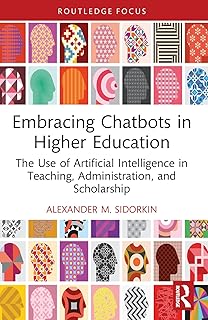The landscape of education is evolving rapidly, driven by technological advancements and innovative learning methodologies. The confluence of AI and education is creating new learning paradigms, with AI chatbots offering personalized support and enhancing classroom experiences. While AI complements traditional teaching methods, it also streamlines tasks like grading and lesson planning, revolutionizing educational processes.
Moreover, the intersection of neuroscience and education is reshaping how we approach learning. Insights from educational neuroscience challenge conventional teaching practices, emphasizing personalized instruction and attention maintenance. As interest in neuroeducation grows, educators are exploring tailored learning experiences that align with brain-based learning principles, fostering deeper understanding and engagement.
Microlearning is gaining momentum as a powerful learning strategy, breaking down complex topics into digestible modules for enhanced retention. By delivering content in bite-sized formats and leveraging spaced repetition, microlearning optimizes knowledge acquisition and long-term memory retention. This trend underscores the shift towards more efficient and effective learning methodologies in response to cognitive limitations.
The surge in online learning underscores a fundamental transformation in education delivery, with the industry projected to reach $319 billion by 2025. Online platforms like Udemy and Teachable democratize access to education, offering diverse courses and empowering instructors to create and monetize their content. The proliferation of online education not only addresses cost and accessibility concerns but also fosters a global community of learners seeking flexible and interactive learning experiences.
The emergence of star-powered instructors on platforms like MasterClass signals a shift towards experiential learning led by industry experts and celebrities. By offering insights from renowned practitioners, these platforms enrich the educational landscape, providing learners with unique perspectives and real-world expertise. This trend highlights the growing demand for engaging and impactful learning experiences beyond traditional academic settings.
Independent entrepreneurs are leveraging learning management systems like Thinkific to launch online courses independently, bypassing traditional platforms and retaining greater control over their content and revenue. This trend empowers educators and content creators to deliver personalized learning experiences and monetize their expertise directly, reshaping the educational marketplace.
Niche education platforms are catering to specialized audiences, offering in-depth training in technical fields and niche domains that traditional platforms may overlook. Platforms like Cybrary and Hack The Box provide tailored courses designed for professionals seeking advanced skills and certifications, addressing the demand for specialized and industry-relevant learning experiences.
As the education sector embraces extended reality (XR), institutions are integrating augmented and virtual reality technologies to enhance learning outcomes and engagement. XR applications in higher education, such as virtual dissection labs and immersive learning experiences, are revolutionizing how students interact with course material, fostering deeper understanding and skill development.
Soft skills are taking center stage in education and employment, with a renewed emphasis on teamwork, communication, and problem-solving skills. As employers prioritize soft skills in recruitment, educational institutions are incorporating social-emotional learning into curricula to equip students with essential competencies for success. Innovative tools like VR training simulations are helping bridge the soft skills gap, offering immersive experiences that enhance interpersonal and leadership skills.
The shift towards alternative assessments is challenging traditional testing practices, with educators reevaluating the effectiveness of high-stakes exams in measuring student learning. Initiatives like the Mastery Transcript prioritize competency-based assessment, focusing on students’ mastery of subjects and skills rather than standardized test scores. This evolution in assessment methods reflects a broader movement towards holistic evaluation and personalized learning experiences.
Amidst these transformative trends, the education sector is grappling with a worsening teacher shortage, exacerbated by factors like low pay and high attrition rates. Efforts to address the shortage include raising teacher salaries, simplifying licensing requirements, and diversifying recruitment strategies. As the education landscape continues to evolve, addressing the challenges of teacher retention and recruitment remains a critical priority for ensuring quality education for all.
In conclusion, the evolving education trends of 2025 reflect a dynamic landscape shaped by technological innovation, research-driven practices, and evolving learner needs. As the sector embraces digital transformation, personalized learning approaches, and immersive technologies, educators and learners alike are poised to benefit from a more inclusive, engaging, and effective educational experience.
📰 Related Articles
- Workplace Learning Trends 2025: Embracing Innovation for Organizational Success
- eBay Report Reveals Fall 2025 Luxury Fashion Trends
- Wimbledon 2025: Celebrity Fashion Trends on Centre Court
- Why Did Jennifer Garner Skip the Met Gala 2025? Insights on Women Fashion Trends
- Vogue Online Shopping Night 2025: Fashion Deals & Trends Unveiled
📚Book Titles
- Modern Trends Explained: Culture, Tech, and the World in Motion
- Crisis on the Pitch: The Dark Side of Qatar’s Gleaming World Cup
- Artificial Intelligence in Pedagogy: Transforming Education through Personalized Learning and Continuous Feedback
- The Morpheus Manual: Mentorship, Belief, and Leading Others to Wake Up






